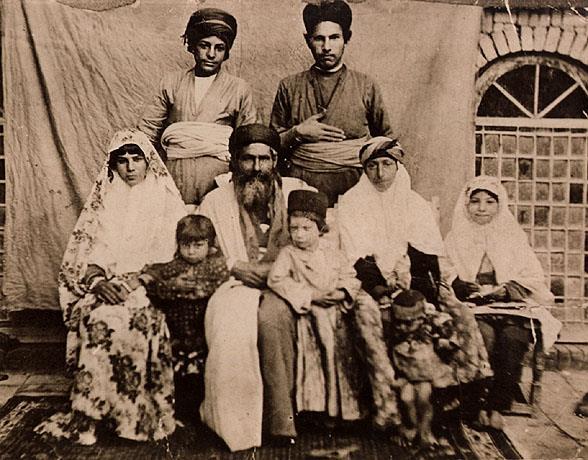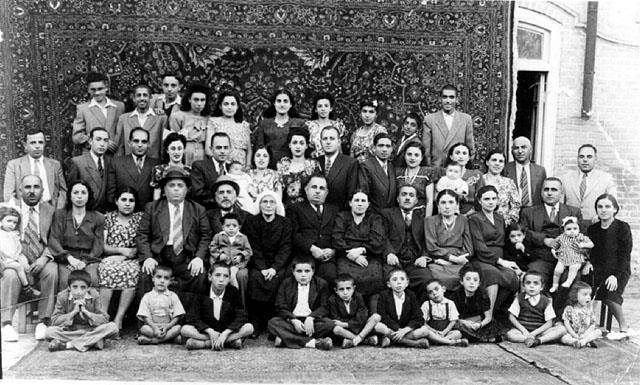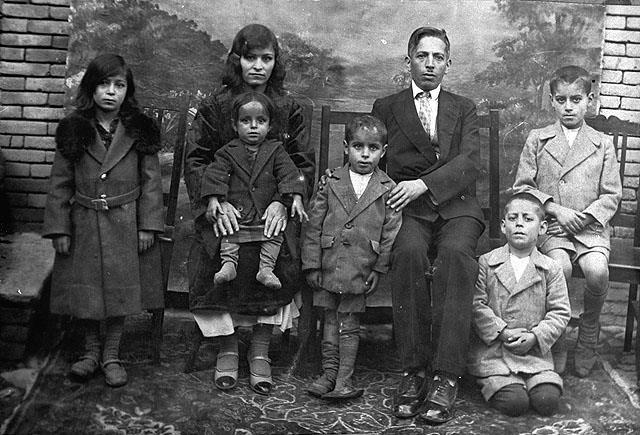Family Names of the Jews of Iran
Haim Ghiuzeli
Apart from a small number of families, most Iranian Jews did not have permanent surnames until the 1930s, when the Shah of Iran, Muhammad Raza Pahlavi, ordered all inhabitants of Iran to adopt permanent surnames as part of the modernization process he led in his country. Although family names are a relatively new phenomenon among the Jews of Iran, many of the names themselves are very ancient and have been in use for generations as first names or personal nicknames.
Many of the new family names are based on a male ancestor’s personal name. These were usually Jewish names of Hebrew origin. The ancient given names have been added various suffixes common to the Farsi language, such as “-yan”, which denotes the plural form of Iranian surnames, or “-zada”, which means “son”, and “pur”, another term for “son”. Not only that, but sometimes the Hebrew names appear according to their pronunciation in Farsi. For example, the given name Abraham served as basis for a number of surnames, among them Abrahamian, Abraimian, Abrahimzada and Abrahampur. All these family names mean “son / sons of Abraham”. Similar surnames include Davidian, Davidzada, Tobian, Yehudian, Yomtubian, and Ephremian (derived from Ephraim).
Other surnames were derived from place names, such as Dardashti, derived from the name of an eastern neighborhood in the city of Tehran; Kashani from the city of Kashan; Golbary, from Golbahar, the name of the Jewish quarter in Isfahan; Shirazi; Teherani, and others.
Names derived from occupations include Pokhtopolovi, which in Farsi means “someone who cooks rice”, originally used as a nickname for an individual famous for his excellent rice dishes; Sarafian, derived from saraf, which is the Farsi term for “money changer/lender”; Nokresaz, which means “silversmith”; Hakim, which means “physician”; and Ayandehsaz , derived from the Farsi term for “manufacturer of mirrors”.
A different category of family names is based on terms related to Jewish tradition and to the Land of Israel. An example is Delrahim, a family name composed of two words: del, the Farsi term for “heart”, and rahim, which in the same language means “merciful”, thus the literary translation of Delrahim is “merciful heart”. Additional surnames based on occupations or terms from the Jewish tradition include Somech, a title designating an assistant cantor in the synagogue; Tefillin; Hanukkah; Dayanzada; More Tzedek; Rodef Shalom; and Urshalimi, derived from Urshalim, the Farsi version of Yerushalaim – the Hebrew name of Jerusalem.
Surnames derived from personal nicknames include Gongian or Gungian, derived from gong, the Farsi word for a “dumb person”. The family name Kuchik is based on the Farsi term for “short” / “small” who is “low” and the meaning of Barhurdar is “happy”, “content”.
After immigrating to Israel, several families changed their surname. For example, Mofazazkar, which denotes a type of “jeweler”, was abbreviated to Mofaz, and Nimordi, which originally was a nickname meaning “not dead”, was replaced by the name Nimrodi.


